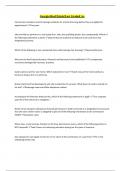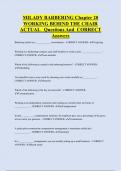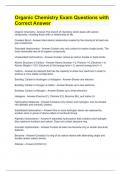Writer: Rod Hague, Martin Harrop and John McCormick
Edition: 10
ISBN: 9781137528360
,Index
Chapter 1: Key Concepts ......................................................................................................................... 3
Chapter 2: The state ................................................................................................................................ 7
Chapter 3: Democratic rule ...................................................................................................................... 9
Chapter 4: Authoritarian rule .................................................................................................................. 12
Chapter 5: Theoretical approaches ....................................................................................................... 14
Chapter 6: Comparing government and politics .................................................................................... 17
Chapter 7: Constitutions and courts ...................................................................................................... 20
Chapter 8: Legislatures .......................................................................................................................... 23
Chapter 9: Executives ............................................................................................................................ 26
Chapter 10: Bureaucracies .................................................................................................................... 28
Chapter 11: Sub-national government ................................................................................................... 30
Chapter 12: Political culture ................................................................................................................... 32
Chapter 13: Political participation .......................................................................................................... 34
Chapter 14: Political communication ..................................................................................................... 36
Chapter 15: Political parties ................................................................................................................... 37
Chapter 16: Elections............................................................................................................................. 40
Chapter 17: Voters ................................................................................................................................. 42
Chapter 18: Interest groups ................................................................................................................... 44
Chapter 19: Public policy ....................................................................................................................... 46
2
,Chapter 1: Key Concepts
To understand political terms, we can distinguish concepts and conceptions.
- Concept: A term, idea or category
- Conception: The manner in which something is understood or interpreted
The terms government and politics are routinely used interchangeably, but are not necessarily applied
correctly, and terms such as power come in several different forms.
The problem of disputed meanings is not only found in political science, but throughout the social
sciences, and there is even some dispute about the meaning of the term social science. The used
term in the book is:
The study of human society and of the structural interactions among people within society. Distinct
from the natural sciences, such as physics and biology.
When the book is talking about government they mean the following:
The institutions and offices through which societies are governed. Also used to describe the group of
people who govern (e.g. the Japanese government), a specific administration (e.g. the Putin
government), the form of the system of rule (e.g. centralized government), and the nature and
direction of the administration of a community (e.g. good government).
Government and governance
One way of referring to the broader array of forces surrounding and influencing government is through
the concept of a political system. A political system is the interaction and organizations (including but
not restricted to government) through which society reaches and successfully enforces collective
decisions. Interchangeably used with the term regime, but the latter tends to have negative
connotations.
Another related that has undergone a recent revival is governance, which refers to the whole range of
actors involved in government. Governance is the process by which decisions, laws and politics are
made, with or without the input of formal institutions.
Politics
Politics is the process by which people negotiate and compete in the process of making and executing
shared or collective decisions. A crisp definition of politics is difficult because the term is used in so
many different ways. But three aspects of politics are clear:
- It is a collective, activity, occurring between and among people;
- It involves making decisions on matters affecting two or more people, typically to decide on a
course action, or to resolve disagreements;
- One reached, political decisions become authoritative policy for the group, binding and
commits its members.
Politics is necessary because of the social nature of people. Politics possesses a hard edge, reflected
in de adverb authoritatively in the famous definition of a political system offered by the political
scientist David Easton:
“A political system can be designated as the interactions through which values are authoritatively
allocated for a society; that is what distinguishes a political system from other systems lying in its
environment’’
As a concept politics can be defined as the process of making and executing collective decisions. The
interpretation of politics as a community serving activity can be traced back to the Greeks. So argued
the Greek philosopher Aristotle that man is by nature a political animal. This interpretation of politics
is also done by Bernard Crick:
“Politics can be defined as the activity by which different interests within a given unit of rule are
conciliated by giving them a share in power in proportion to their importance to the welfare and the
survival of the whole community”
Politics can also involve narrow concerns taking precedence over collective benefits when those in
authority place their own goals above those of the wider population. This kind of politics has given a
definition by Harold Lasswell:
3
,“Who gets what, when and how’’
Politics has many different facets. The essence of politics lies in the interaction between conceptions.
As Laver puts it:
“Pure conflict is war. Pure cooperation is true love. Politics is a mixture of both”
Power
At the heart of politics is the distribution and manipulation of power. The philosopher Bertrand Russell
sees power as “the production of intended effect’’.
Power: The capacity to bring about intended effects. The term is often used as a synonym for
influence, but is also used more narrowly to refer to more forceful modes of influence: notably, getting
one’s way by threats.
Most analyses of power focus on relationships: on power over others. Here, the three dimensions of
power distinguished by Steve Lukes are useful.
Assessing power Proponent
First Who prevails when preferences Dahl (1957)
conflict?
Second Who controls whether Bachrach and Baratz (1962)
preferences are expressed?
Third Who shapes preferences? Lukes (1974)
The state, authority, and legacy
The state is a political term. The state provides the legal or formal mandate for the work of
governments, allowing them to utilize the authority of inherent in the state. The state is also intimately
related to two concepts that lie at the heart of our understanding of government and politics; authority
and legitimacy.
Authority: The right to rule. Authority creates its own power, so long as people accept that person in
authority has the right to make decisions.
Legitimacy: The state of quality of being legitimate. A legitimate system of government is one based
on authority, and those subject to its rule recognize its right to make decisions.
Ideology
One way to approach the role of ideas is via the notion of ideology, a term which was coined by the
French philosopher Antoine Destutt de Tracy during the 1790’s. But today a ideology is a system of
thought expressing a view on:
- Human nature;
- The proper organization of, and relationship between state and society;
- The individual's position within this prescribed order.
Ideology: A system of connected beliefs, a shared view of the world, or a blueprint for how politics,
economics and society should be structured.
Five major ideologies:
1. Anarchism: All forms of governmental authority are unnecessary, and society is best
structured around voluntary cooperation and free association.
2. Marxism: Elimination of the state system and private property will lead to the creation of a
classless, non-exploitative, and self-governing society.
3. Liberalism: Individuals are the best judges of their own interests. Advocates a tolerant society
which maximass personal freedom, and favours a government which is limited but freely
elected.
4. Conservatism: Traditional institutions are practices work best, the free market is the most
efficient at meeting societal needs, and government should be as decentralized as possible.
4
, 5. Fascism: The achievement of national unity through an authoritarian state, strong leadership,
mass mobilization, and an emphasis on nationalism and militarism.
The words left and right are still commonly encountered in classifying political parties.
Left Right
Peace Armed forces
Internationalism National way of life
Democracy Authority, morality and the constitution
Planning and public ownership Free market
Trade protection Free trade
Social security Social harmony
Education Law and order
Trade unions Freedom of rights
Comparative politics
The core goal of comparative politics is to understand how political institutions and processes operate
by examining their workings across a range of countries.
Comparative politics: The systematic study of government and politics in different countries, designed
to better understand them by drawing out their contrasts and similarities.
The first strength of a competitive approach is to improve our understanding of government and
politics. Comparison permits generalizations which have some potential for prediction. In politics
prediction is an art rather than a science.
Classifying political systems
A typology is a system of classification that divides states, into groups or clusters with common
features.
Typology: A system of classification by with state’s, institutions, processes, political cultures, and so
on is divided into groups or types with common sets of attributes.
Charles de Secondat and Baron de Montesquieu (The spirit of the Laws)
Three different political systems:
- Republican systems;
- Monarchy systems;
- Despotic systems.
Three worlds system
- First world: wealthy, democratic industrialized states, most of which were partners in the
Western alliance against communism;
- Second world: communistic systems, including most of those state's ranged against the
Western alliance;
- Third world: poorer, less democratic, and less developed states, some of which took sides in
the Cold War, but some of which did not.
Three world systems: A political typology that divided the world along ideological lines, with state's
labeled according to the side they took in the Cold War. This system ended when the Cold War
ended.
5











